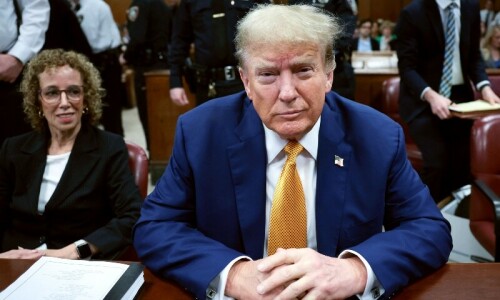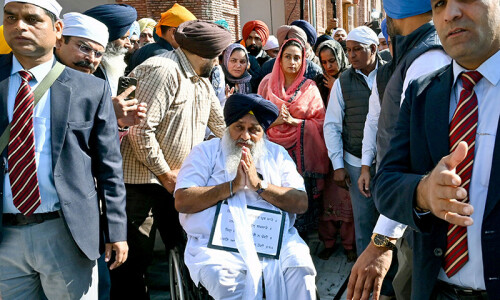It is normal for macroeconomic imbalances to occur during economic development and growth, but they must be addressed as an ongoing process. Visionaries notice the issues at the nascent stage, others recognise a crisis when severely hit, and those least affected take it as a new normal phase. Issues should not be allowed to turn into problems which then escalate into crises.
The process of development is disruptive, as are the latest technologies. But they open up new paths to economic, political and social progress. In this scenario, there is a constant tussle between winners and losers of creeping changes and sharp divergence of views that cloud the way forward. Continuity of public and corporate policies, which have not lost their social utility, are as necessary as are the changes for a better future.
Facing domestic and external shocks, a segment of the manufacturing sector — particularly food processing industries — has taken initiatives to enhance local content in their output to cut operational costs on imported inputs, and a few others are also diversifying production for exports. The process needs to be expedited.
Coinciding with this emerging trend is another positive development of how consumers try to cope with high inflation. An investigative media report shows a rise in local brands on the e-commerce platform. Instead of lavish purchases of imported brands (snacks, pet foods, cosmetics and diapers), the report shows consumers opt for home-grown labels.
A competent team of technocrats with elected representatives at the helm must execute people’s mandate
Ground realities prompt the emerging pattern of domestic demand. The view that effective import substitution should be integral to the country’s industrial policy is now widely recognised. A corporate conference held on September 25 in Multan, participated by representatives of various sectors, highlighted the critical importance of embracing modernisation and innovation in business while prioritising people-centred development, particularly in uncertain times.
To quote a World Bank report, Pakistan’s economic model no longer reduces poverty. Implicit in the current state of affairs is that we say goodbye to policies that brought us to such a pass.
Here, it is pertinent to note that the International Monetary Fund’s World Economic Outlook, published in April, observed that fiscal consolidations — a term usually linked to austerity programmes according to local analysts — ‘do not reduce debt ratios, on average’.
Prof Stefan Dercon, Professor of Economic Policy at Oxford University, says Pakistan’s economic status quo is untenable, and even elites are losing because of it. He discussed the economics of elite bargain: “too many unreasonable policy measures regularly led to macroeconomic and fiscal crisis and need for outside support.”
Pakistan is facing a serious economic and human development crisis, and it is at a point where major policy shifts are required, says World Bank lead country economist Tobias Haque, adding that there is a need to recognise the scale of the problem.
Pakistan’s failure to carry democratic, structural and institutional reforms for decades has left its public policies in shambles. To quote the World Bank official, there is a lot of stop and go and a lot of policy reversal, which often are correlated with political cycles. “Politics and economic policies needed to be aligned for long-term growth and development,” says Prof Dercon.
Observing that not all countries have perfect institutions and face governance, political and corruption issues, he points out that countries are making ‘progress as they have political systems’. Against this backdrop, one can see an unusual move by the World Bank to help Pakistan not only take the road to financial stability but also assist the country in adopting a correct political course.
Towards that end, the Washington-based lender unveiled the draft policy notes recently that it prepared with the help of all stakeholders for the next government.
“We hope this programme of discussions will help build a consensus around a path towards inclusive, sustainable, and climate-resilient development,” said Najy Benhassine, Country Director for Pakistan at World Bank.
This may be seen as an effort by the World Bank to help build a consensus on priority areas while the local stakeholders have been struggling to evolve a charter of economy.
The donors could only provide advice and financing, but the solution would have to come from inside Pakistan, says Mr Haque. This view is widely shared by local analysts, economists and researchers.
Responding to a question, he said: “We hope there is a realisation of the current economic situation, but the question is whether there is a realisation for the change in policies across all political parties, businesses, civil society and all those who count.”
The World Bank’s move to initiate discussions on the draft programme should encourage political parties to selectively look at the suggested urgent priorities that they may like to adopt in their election manifestoes. It is also vital that a competent team of technocrats with elected representatives at the helm of affairs should execute people’s mandate.
Published in Dawn, The Business and Finance Weekly, October 2nd, 2023












































Dear visitor, the comments section is undergoing an overhaul and will return soon.